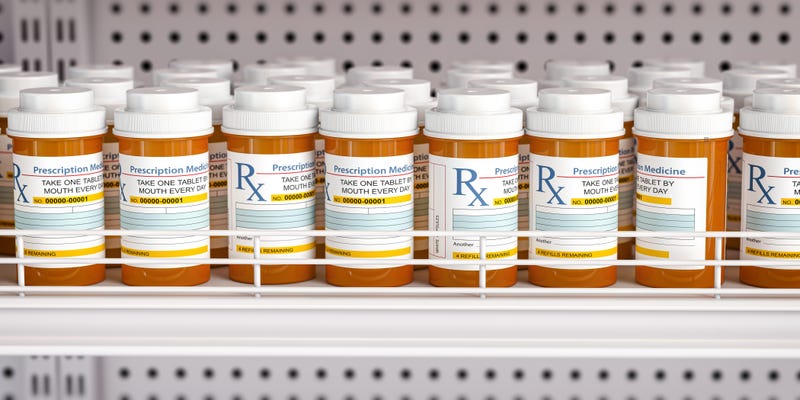
A non-profit in Dallas is expanding to provide prescription drug access to more people. The Society of Saint Vincent de Paul is expanding to San Antonio.
The organization provides prescription drugs for people without insurance and who meet income guidelines. Prescriptions include maintenance medications for conditions like diabetes, hypertension and seizures.
"If you feel lethargic, bedridden or you can't function properly, you're not able to take care of yourself or take care of your family. You can't go to work," says Society of Saint Vincent de Paul North Texas Chief Executive Luis Gonzalez.
Gonzalez says the non-profit filled 100,000 prescriptions in 2023 and expects to fill 125,000 in 2024. The Society of Saint Vincent de Paul has started working with the group, Haven for Hope, in San Antonio.
"They deal with homeless individuals or those in transitional housing," he says. "What we're able to do is ship medications down to the clinic at Haven for Hope. They'll take responsibility for dispensing the medications to individuals."
The U.S. Census says the percentage of uninsured Texans dropped to its lowest point in a decade in 2022, the most recent year stats were available. Even with the drop, 17% of Texans, or 4.9 million people, still did not have coverage.
Gonzalez says many people without insurance or a prescription drug plan will only seek out treatment when a condition becomes an emergency.
"We've had patients who take 30, 40, 50 trips to the ER for exactly that reason," he says.
Gonzalez says treatment of a chronic condition will be much more expensive in the emergency room. In turn, he says a patient who is homeless or has an income less than 300% of the federal poverty level is less likely to pay at a public hospital, so those costs may then be passed on to taxpayers.
"The financial implications of this when you start thinking of the strain and drain on our public health system, you have individuals who, because they're not taking their medication, they end up in the ER. They get a two week dose of medication, so they feel good for two weeks, but inevitably they slide back into not feeling well and back in the ER. That just is a recurring cycle," he says.
Gonzalez says having medications shipped directly to a person's home or a shelter where they are staying lowers costs on the public health system. But he says helping people with chronic conditions can help them break a cycle of homelessness, regain stability in their lives and contribute to the economy.
"So many of us take for granted that we are blessed with health insurance or prescription coverage of some sort," he says. "Unfortunately, as great as our state is, one of the things we lead the country in is uninsured patients."
Gonzalez says the Society of Saint Vincent de Paul hopes to continue expanding, so he hopes to build additional partnerships to raise more money.
"While we don't try to pretend we're going to take care of five million [uninsured] people, we do want to continue to expand our service and make it available to as many people as possible," he says.
More information is available at svdpdallas.org/pharmacy/

LISTEN on the Audacy App
Tell your Smart Speaker to "PLAY 1080 KRLD"
Sign Up to receive our KRLD Insider Newsletter for more news
Follow us on Facebook | Twitter | Instagram | YouTube
